The deployment I recently returned from was my first and I was deployed to Afghanistan (southeast). Though I cannot disclose whom I was attached to, I can say I was attached to a 1st Group ODA for a brief period of time and then a 3rd Group ODA for the remainder of my deployment.
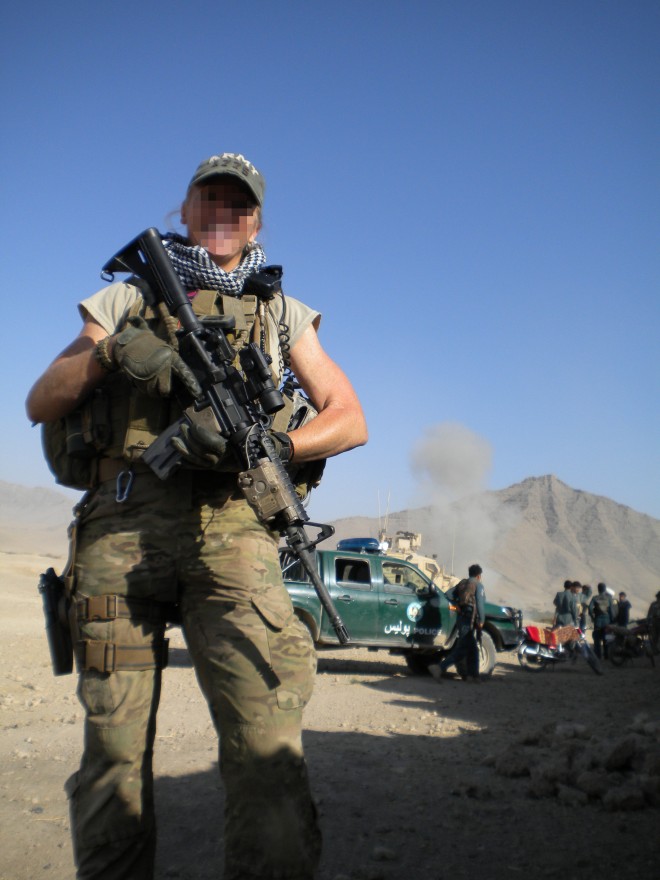
What type of patrols did you go out on and what was your duty position and responsibilities?
We went out on both mounted and dismounted patrols. We conducted clearings some of which were conducted in the local villages. During missions, I was part of the security element and when engaged, fought side-by-side with the team.
After proving myself to be a capable soldier, I was viewed as such, which meant I was not seen as a female that needed to be protected (I was not a distraction on the battlefield). Additionally, as a CST, my partner and I conducted female engagements.
What is it like going out on patrol as a female soldier with Infantry and Special Forces soldiers who are exclusively male? Does it make a difference or is it just a part of the job?
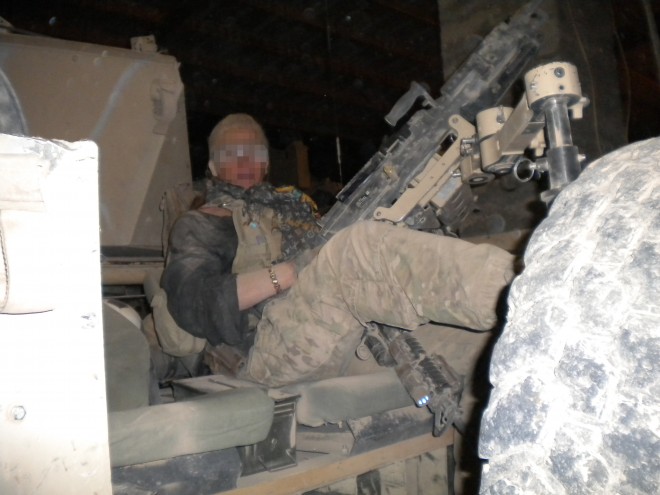
Going out on patrols with the guys was awesome! I would rather work with a bunch of “Type-A” males then a bunch of females any day! It’s pretty easy to get along with these types of guys, you just have to know how to roll with shit and make sure you’ve got thick skin, very thick skin. Now I’m not saying it’s all puppies and sunshine, to the contrary, you better bring it and if you suck at life, you’re screwed, I’ve seen it!
Lately there has been a lot of debate about putting female soldiers in direct combat roles, such as in the Infantry and in Special Operations units. What is your take on this? Is it appropriate to put women in the line of fire alongside the men?
There will always be debate about women in direct combat roles, but let’s think about that one for a minute, what the hell do people think women have been doing since 9/11? Female MP’s, FET’s, CST’s, etc., they’ve been serving in that role. And even more importantly, let’s not forget our CST sisters who lost her life on 22 October 2011 while serving in direct combat.
Most people tend to give knee-jerk reactions to this subject, which drives me crazy! I guess I can’t fault them for being ignorant on just what women like myself have been doing I mean if they haven’t had the opportunity to work with us, how would they know what our capabilities are, right?
I’ve read many opinions on the matter and the majority of them are extremely subjective as opposed to being objective but I guess that’s what an opinion is, it’s generally based on subjectivity.
What I tire of reading are the ridiculous comments about how men and women cannot fight side-by-side because of a man’s natural instinct to want to protect women. Well, if that’s the case then they have failed as a soldier because when we put that uniform on we’re all soldiers.
The other ridiculous argument is the problem of sex. Men seem to think that women serving in these roles would only exacerbate the problem of men and women engaging in sex during deployments. Well, I have a newsflash for them, people are going to have sex regardless of what capacity their serving in, it happens all the time. It’s a human element that you’re never going to get rid of and if you can’t have a “relationship” with someone and still do your job, then again, you have failed as a soldier.
Everyone should be capable of separating personal from professional, but remember, the operative word here is “should.” That being said hell yes it’s appropriate to put women in the line of fire alongside men, but it has to be capable women. You can’t put just any female in that capacity, they have to be capable of doing the job and doing it proficiently.
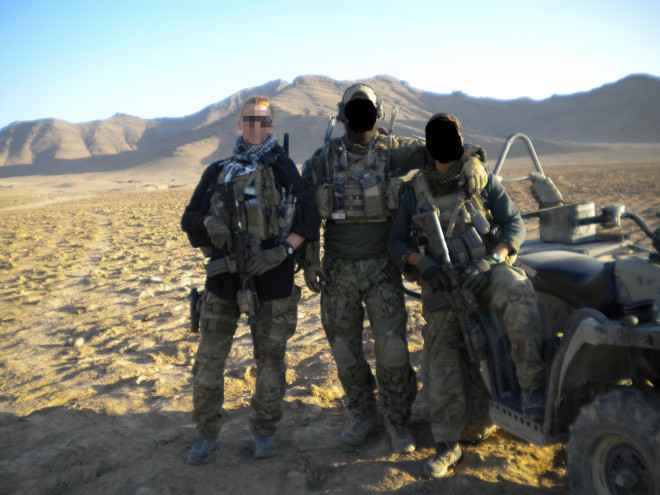
As far as allowing women into the infantry, Rangers or SF, I have mixed opinions on this one. I believe if women can do the job just as well as men, then why not? We cannot, however, expect any concessions to be made for these women. They have to be held to the same standard as their male counterparts.
Discussing women in such capacities makes me think about how race in the military was once a closely related issue/topic. Let’s not forget that not too long ago, race was the determining factor on what role an individual would serve in the military and we’ve thankfully gotten past that.
I believe at this juncture, that female enablers are definitely the way to go. I mean we’re all aware that we’re fighting a war in a country that does not allow males to engage the female population thereby leaving at least 50% of the population untapped. Female enablers such as CST’s can prove to be invaluable as we are capable of not only engaging 100% of the population (men, women, & children), we are also capable of fighting side-by-side with our male counterparts as has been proven.
Perhaps the biggest argument against having women in combat arms roles is that they lack the size and strength of their male counter parts.
Is it realistic to place female soldiers in a situation where they will have to keep up with male soldiers in eighty pounds of equipment or where they may have to throw a 200 pound man (plus kit) over their shoulder in a fireman’s carry?
This is a valid argument. I realize in the infantry one is required to carry upwards of 80 pounds or more while under movement but as mentioned previously, if a woman can effectively perform at this level and keep up, then I say why not. I believe there probably are women that can in fact carry a 200-pound man, but they’re likely few and far between. I do have to say though that I highly doubt every male in the infantry can perform at this level.
Much like anything else, why not conduct a pilot program and see how it goes? How will we know if we don’t give it a try? But again, the standards have to remain the same for women.
A secondary argument against having women on the front lines is anatomical. Sorry to go down this road, but there are some folks who make it sound like female plumbing requires more hours of maintenance than a V-22 Osprey.
Is there any truth to the argument that female anatomy prohibits women from spending long periods of time in the field?
Ah yes, how did I forget to address this one earlier. This one makes me laugh. Baby wipes work just as well for us as they do our male counterparts.
The other concern is the monthly visit from “Ant Flo.” In this day and age, women are able to rid themselves of that annoying monthly visit and most do.
I personally do not believe that just because I am a female I cannot spend as much time in the field as a male, that’s just a silly, archaic way of thinking.
Now I know for a fact there are women in the military that play that very card when forced to be in the field for extended periods of time, but I’m pretty sure these particular women aren’t going to be the one’s pushing for a position in the infantry or SOF community. It takes a certain type of woman just as it takes a certain type of man to serve in these types of roles.
Another secondary argument focuses around the disarray that can be created by throwing a woman into the mix with a bunch of red blooded twenty-something year old soldiers deployed for long stretches in combat situations. Was this ever an issue in your experience? If so, how did you handle it?
I briefly addressed this earlier – this is a valid concern and not just with the twenty-something’s, it’s an issue straight across the board and involves individuals of all ages.
Let’s just say this wasn’t an issue per se in my experience but I stand firm on my belief that whenever you place males and females in a combat situation, the human element is going to exist (think about the hormonal escalation that comes with a high op tempo setting) and you just have to be able to separate personal from professional and you have to be mature enough not to let the situation cause upset within your deployment setting.
I guess this is just one that is going to require a lot of strong leadership to keep things in check. Now don’t get me wrong I’m not saying it’s okay to engage in such relationships, I’m just saying it’s going to happen regardless.
A big concern among the Ranger community is the perception that allowing female soldiers to attend Ranger School will erode the standards and make the school essentially worthless by significantly decreasing the physical and tactical threshold needed for graduation. Is this a valid concern?
Yes, this is a valid concern. We cannot lower the standards just for the sake of having women in this community, as there is too much at risk. If for example I became a Ranger and my training was less than my male counterparts, how could I say I was their equal? Make sense? I can’t say it enough we cannot make concessions for women who want to become Rangers. They must be held to the same standards as men otherwise they become a risk as opposed to an asset.
Many of us believe that the Army as an institution does not have the morale fortitude to stand by the standards and hold women equally accountable. Will the Army drop standards to unacceptable levels to fill a certain quota of female soldiers for political reasons.
If this happens, I think it does a disservice to both male and female soldiers, not to mention that it is criminally negligent to intentionally make a unit less combat effective for political reasons. How can this be prevented? [I know this question is a little unfair, I’m asking you as a soldier more so than as a woman]
I honestly hope this is not the case. If the Army does not have the moral fortitude to stand by the standards and hold women equally accountable, women should not be allowed to serve in these roles. There is no room for politics such as this on the battlefield as it will only get people killed, period! If this does in fact happen, it will be an epic fail on the Army’s part. Again, there’s just too much at risk!
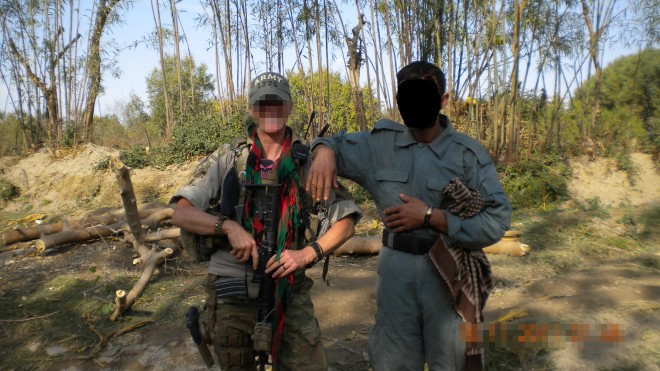
As far as how something like this can be prevented goes, man, I wish I had the answer. I sincerely hope that this entire matter is taken seriously and that those responsible have the wherewithal to realize what’s truly at risk if the standards are in fact lowered.
What advice would you give to a young woman thinking about joining the Army and wanting to carry a rifle in combat?
This is such an exciting time for women in the military! There are so many opportunities available now that weren’t just a few years ago. As far as advice goes, I guess that would depend on the type of individual they are and what they’re looking to get out of joining.
Something that many individuals (men and women alike) don’t think about is what it truly means to be a U.S. soldier and what they’re promising to do as such. Once they’ve wrapped their head around that and if they’re still interested in joining I’d tell them, “go for it!”
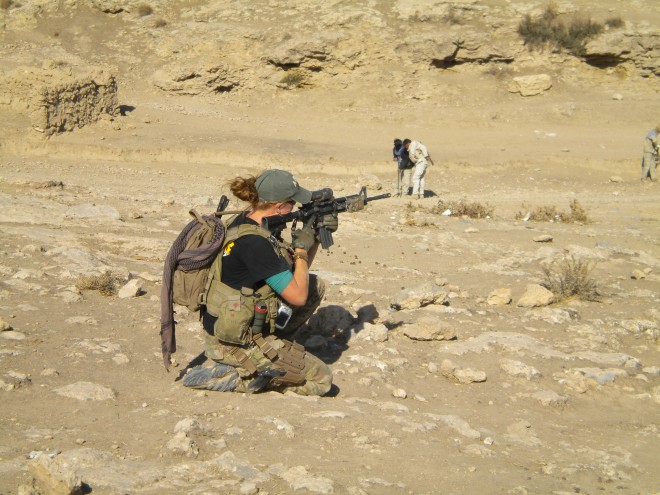
Here’s an example of a dialogue I might have with a young woman thinking about joining the Army:
Think about what it is you want to do in the military, do your research and then go for it. Be the best you can at everything you’re tasked with and make sure to force yourself to step outside your comfort zone as often as possible.
Your opportunities are endless and never limit yourself based on your gender. As a U.S. soldier you will carry a weapon (or two) so make sure you know everything about that weapon and more importantly, make sure you know how to use it because it may very well save your or someone else’s life one day.
I would then explain to them my experiences in the military and of course would go into great detail about the program (CST) I am proud to be a part of.

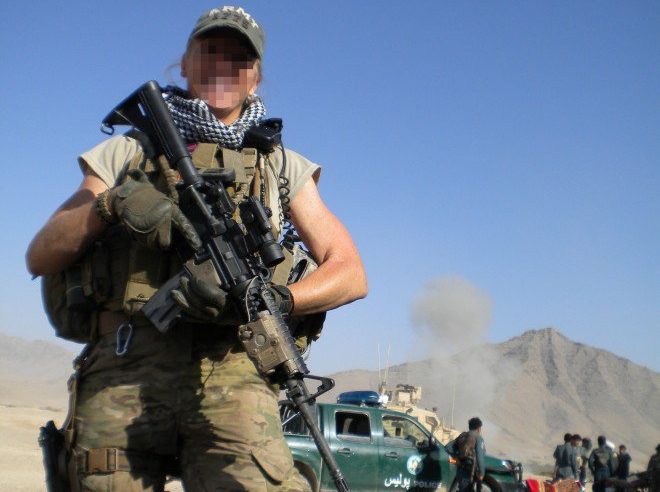








COMMENTS